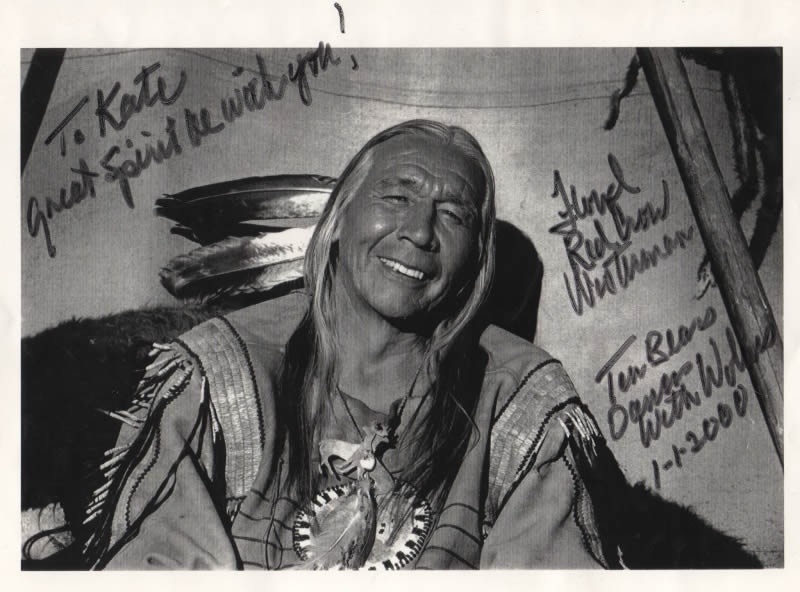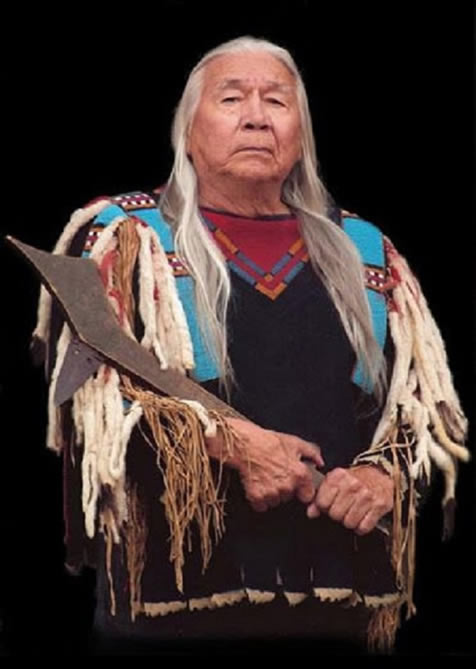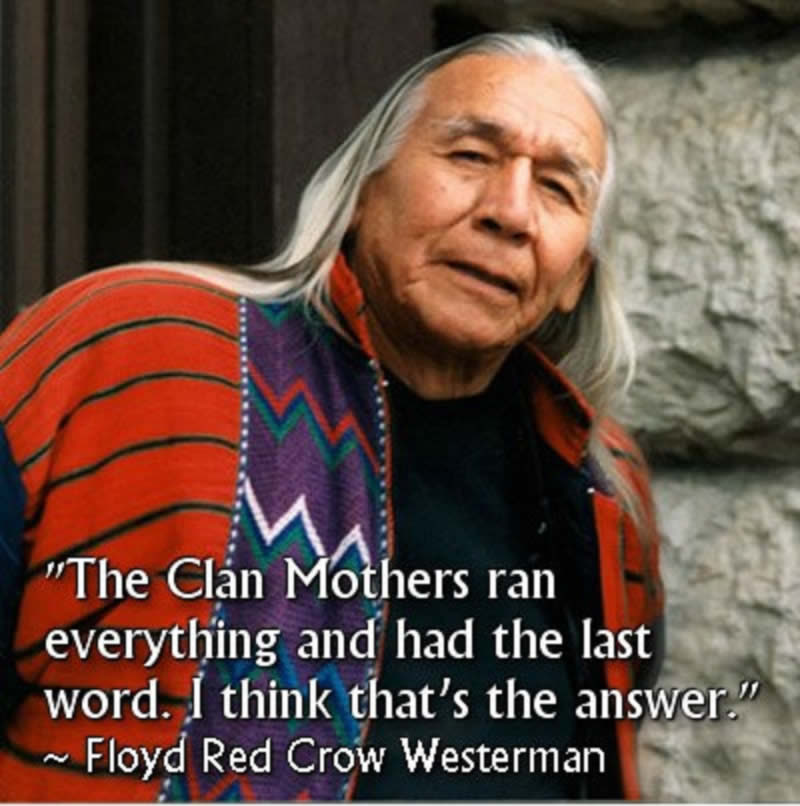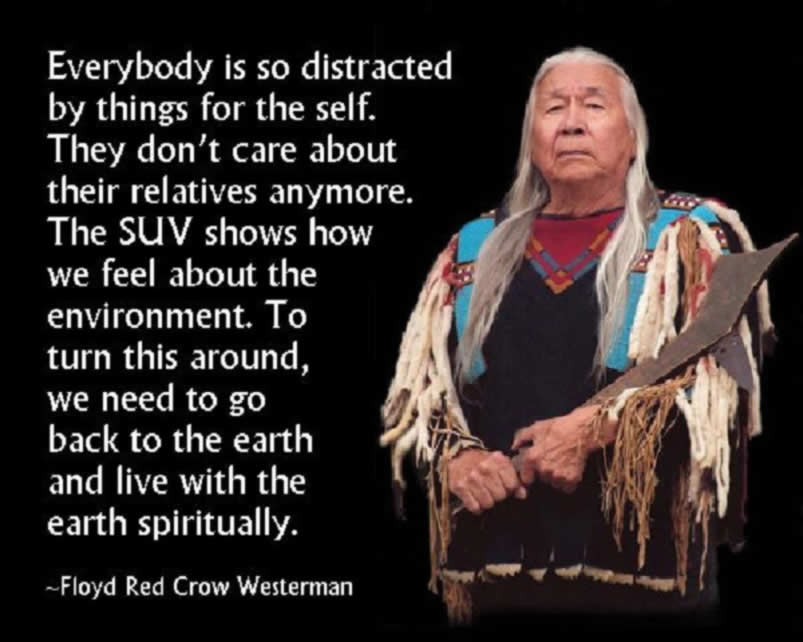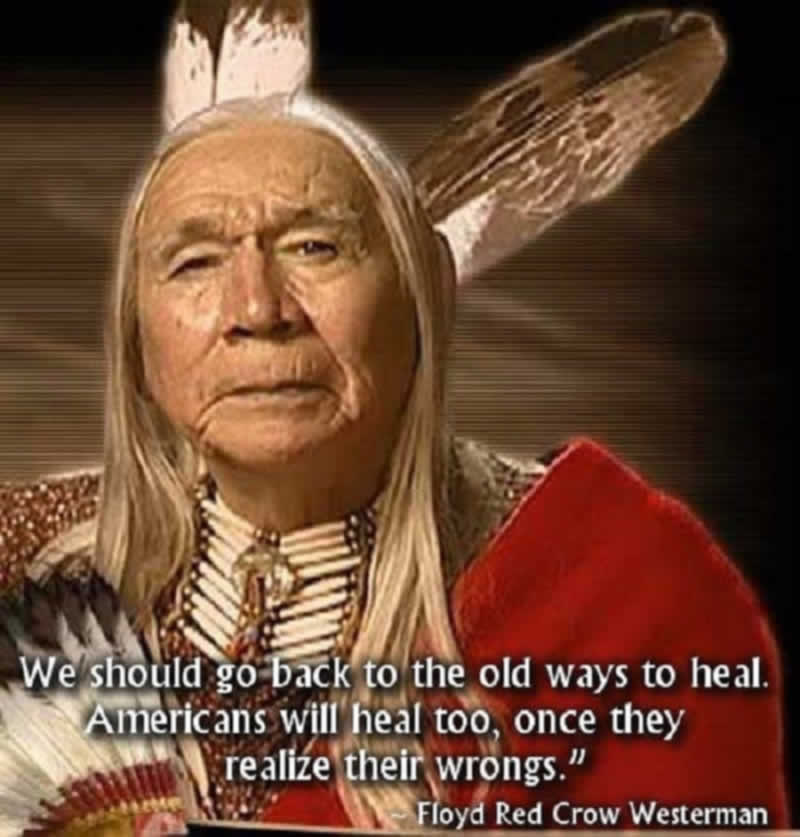Floyd Red Crow Westerman was a beloved Native American actor, musician, and activist who left an indelible mark on the entertainment industry and beyond. Born in 1936 on the Lake Traverse Indian Reservation in South Dakota, Westerman's life was shaped by his deep spiritual beliefs and his commitment to social justice causes. Over the course of his career, he became a prominent voice for Native American representation in media, as well as a powerful advocate for environmentalism, human rights, and indigenous sovereignty. This article will explore the life and legacy of Floyd Red Crow Westerman, shedding light on the many facets of his multifaceted career and his lasting impact on American culture.
1. Early Life and Education
Childhood and Family Background
Floyd Red Crow Westerman was born on August 17, 1936, on the Lake Traverse Indian Reservation in South Dakota, USA. He was of Dakota and Northern Cheyenne descent and grew up in a family that valued their Native American heritage. His parents taught him traditional songs and stories, which laid the foundation for his later career in music and activism.
Schooling and Higher Education
Westerman attended both an Indian boarding school and a public high school where he was an excellent athlete and student. He then went on to study at Northern State University in Aberdeen, South Dakota, where he earned a degree in secondary education. As a teacher, he incorporated his love for music into his curriculum, which would later become a significant part of his career.
2. Discovering His Passion for Music
Developing Musical Talents as a Child
Westerman's childhood exposure to music helped develop his talents further. He learned to play the guitar and, as a teenager, formed a band with his siblings called the "Westerman Family Singers." They performed at local events and celebrations, and it was during these early performances that Westerman discovered his passion for music.
Forming the Peacepipe Band
In the late 1960s, Westerman formed a band called "The Peacepipe" and began touring the country. The band's music combined traditional Native American rhythms with contemporary rock sounds and included messages of peace and unity. They released several albums and performed at major events, such as the Woodstock Festival in 1969.
Collaborations with Other Musicians
Throughout his career, Westerman collaborated with other musicians, including Jackson Browne, Bonnie Raitt, and Willie Nelson. He also sang backup vocals on the album "Bitter Tears: Ballads of the American Indian" by Johnny Cash, which aimed to raise awareness of Native American issues.
3. Red Crow's Acting Career
Early Acting Roles
In the 1980s, Westerman began to pursue acting, appearing in several television shows and films. He played supporting roles in popular shows such as "The X-Files" and "Walker, Texas Ranger." He also appeared in films such as "Renegades" and "Dances with Wolves," in which he played Ten Bears, the leader of the Comanche tribe.
Breakthrough Role in "Dances with Wolves"
Westerman's portrayal of Ten Bears in "Dances with Wolves" brought him critical acclaim and international recognition. He used this success to bring attention to Native American issues in Hollywood, advocating for more accurate portrayals of Native Americans in film and television.
Other Notable Acting Credits
Westerman went on to appear in several other notable films, including "The Doors," "Hidalgo," and "The Last of the Mohicans." He also continued to act in television shows, including "Sons of Anarchy" and "The Dead Zone."
4. Activism and Community Involvement
Supporting Native American Causes
Westerman was a prominent activist for Native American rights throughout his life. He was involved in the American Indian Movement and supported the struggles of Native Americans to retain their land, culture, and traditions. He also worked with several organizations, including the United Nations, to raise awareness of the issues faced by Native Americans.
Environmental Activism and Standing Rock Protests
Westerman was also an advocate for environmental issues and was involved in protests against the Dakota Access Pipeline at the Standing Rock Sioux Reservation. He joined other activists in solidarity with the tribe's fight for clean water and the protection of their sacred land.
Humanitarian Efforts and Outreach Work
Westerman was also committed to humanitarian efforts and worked to improve the lives of those less fortunate. He performed at benefit concerts for various causes, including famine relief in Ethiopia and hurricane relief in the Caribbean. He also started his own nonprofit organization, the Floyd Red Crow Westerman Foundation, which aimed to promote peace, cultural awareness, and environmental preservation.
5. Spiritual Beliefs and Music
Incorporating Traditional Native American Culture in Music
Floyd Red Crow Westerman was not only an actor and activist, but also a musician who incorporated aspects of his Native American heritage into his music. He often incorporated traditional instrumentation, such as drums and flutes, and his lyrics touched on themes of spirituality and nature.
Spiritual Beliefs and Philosophy
Westerman's music was a reflection of his spiritual beliefs and philosophy, which focused on living in harmony with nature and respecting all living things. He believed that music was a way to connect with the spiritual world and used his music to convey messages of peace, unity, and environmentalism.
Musical Work with Religious Themes
Westerman also explored religious themes in his music, particularly in his album "Custer Died For Your Sins". The title track is a spoken word piece that critiques the treatment of Native Americans by the US government and Christianity's role in the oppression of indigenous peoples.
6. Lasting Legacy of Floyd Red Crow Westerman
Impact on Native American Representation in Media
Westerman's activism and portrayal of Native American characters in film and television helped bring greater visibility to indigenous voices in media. He was a strong advocate for the rights of indigenous peoples and worked to combat stereotypes and discrimination.
Continued Appreciation for His Music
Westerman's music continues to resonate with audiences today. His songs are often used in documentaries about Native American history and environmental issues. His legacy as a musician who used his platform to advocate for social and environmental justice has inspired many.
Legacy of Activism and Humanitarian Work
Westerman's activism extended beyond his work in media and music. He was a vocal advocate for Native American rights, environmental protection, and humanitarian causes. He co-founded the American Indian Movement and was involved in the Longest Walk in 1978, which was a protest against legislation that threatened Native American sovereignty. His legacy as a tireless advocate for justice and equality continues to inspire generations.Floyd Red Crow Westerman's life was a testament to the power of art, activism, and spirituality to effect positive change in the world. By using his talents and his voice to amplify the stories and struggles of Native American communities, he helped to build bridges of understanding and empathy that continue to resonate today. Whether through his music, his acting, or his advocacy work, Westerman remained a dedicated and visionary leader until his passing in 2007. His legacy serves as an inspiration to all those who seek to honor the richness and diversity of indigenous cultures, and to promote a more just and equitable world for all people.
FAQ:
1. What were some of Floyd Red Crow Westerman's most famous acting roles?
Some of Westerman's most notable acting credits include his role as Chief Ten Bears in "Dances with Wolves," as well as appearances in television shows like "Walker, Texas Ranger," "The X-Files," and "Northern Exposure."
2. What causes and issues was Floyd Red Crow Westerman most passionate about?
Westerman was a committed activist and humanitarian throughout his life, and was particularly vocal about issues affecting Native American communities. He was a staunch advocate for environmentalism, indigenous sovereignty, and human rights, and supported a variety of causes related to these issues.
3. What kind of music did Floyd Red Crow Westerman create?
Westerman's music was grounded in the traditions and spirituality of his Native American culture, and often featured elements such as traditional drumming, chanting, and storytelling. He also infused his music with contemporary styles such as rock and folk, creating a unique and powerful sound that reflected his personal and artistic vision.
4. What is the lasting legacy of Floyd Red Crow Westerman?
Westerman's legacy is multifaceted and far-reaching, encompassing his contributions to the arts, activism, and spirituality. His work as an actor and musician helped to elevate the voices and experiences of Native Americans in mainstream media, while his advocacy work paved the way for progress on a range of social justice issues. Today, he is remembered as a visionary leader and a passionate advocate for Indigenous rights and representation.
---------------------------------
Floyd "Red Crow" Westerman, also known as Kanghi Duta (aged 71), was a Sioux musician, political activist, and actor. After establishing a career as a country music singer, later in his life, he became a leading actor depicting Native Americans in American films and television. He is sometimes credited simply as Floyd Westerman.He worked as a political activist for Native American causes.
http://en.wikipedia.org/wiki/Floyd_Crow_Westerman
http://floydredcrowwesterman.com/
Red Crow: Native American Prophecy
Floyd Red Crow Westerman (1936-2007) was a prominent Native American activist, musician, actor, and artist. Born on the Lake Traverse Indian Reservation in South Dakota, Westerman was a member of the Dakota Sioux tribe. Throughout his life, he was a passionate advocate for Native American rights, environmental issues, and social justice causes. Westerman's music and art were also integral to his activism, as he used these platforms to raise awareness of important issues affecting Indigenous communities. In this article, we will explore the life and legacy of Floyd Red Crow Westerman, examining his early years, activism, music career, artistic achievements, personal beliefs, and lasting impact on Native American culture.
Early Life and Career of Floyd Red Crow Westerman
Childhood and Education
Floyd Red Crow Westerman was born on August 17, 1936, on the Sisseton-Wahpeton Reservation in South Dakota, USA. He grew up on the reservation and was later sent to a Bureau of Indian Affairs boarding school in Pierre, South Dakota. Westerman attended college at Northern State College in Aberdeen, South Dakota, where he earned a degree in secondary education.
Military Service and Early Career
Westerman served in the United States Marine Corps from 1955-1958, after which he returned to South Dakota and began teaching high school. He eventually left teaching to pursue his passion for music and activism.
Activism and Advocacy for Indigenous People
Role in American Indian Movement (AIM)
Westerman was an active member of the American Indian Movement (AIM) and participated in a number of protests and demonstrations advocating for the rights of Indigenous people. He was present at the 1972 Trail of Broken Treaties protest in Washington, D.C., and the 1973 occupation of Wounded Knee on the Pine Ridge Reservation in South Dakota.
Environmental Activism and Anti-Nuclear Protests
In addition to his work with AIM, Westerman was also an environmental activist and advocated against nuclear energy and weapons. He performed at a number of anti-nuclear rallies and protests throughout his career.
Advocacy for Native American Rights
Throughout his life, Westerman worked tirelessly to promote Indigenous rights and causes. He was involved in the fight for Native American religious freedom and was a vocal advocate for the protection of sacred sites.
Music Career and Contributions
Early Musical Influences
Westerman's love for music began at a young age, and he was heavily influenced by traditional Native American music and culture. As he got older, he also became interested in folk and protest music.
Collaborations and Discography
Over the course of his career, Westerman collaborated with a number of other musicians and released several albums of his own. His music was heavily influenced by his activism, and he used it as a way to raise awareness about issues affecting Indigenous people.
Social and Political Messages in Music
Westerman's music was characterized by its powerful social and political messages. He often used his music to tell the stories of Indigenous people and to raise awareness about their struggles for justice and equality.
Artistic Achievements and Legacy
Acting Career and Performances
In addition to his music and activism, Westerman also had a successful career as an actor. He appeared in a number of films and TV shows, including "Dances with Wolves," "The Doors," and "Walker, Texas Ranger."
Other Artistic Endeavors
Westerman was a talented painter and sculptor, and his work was featured in galleries and exhibits around the world.
Legacy and Influence on Native American Culture
Westerman's legacy continues to have a profound impact on Native American culture and communities. His music, art, and activism helped raise awareness about the struggles and injustices faced by Indigenous people, and he remains a powerful symbol of resilience and resistance.
Personal Life and Beliefs
Floyd Red Crow Westerman was a Native American musician, actor, and activist born on August 17, 1936, on the Lake Traverse Reservation in South Dakota. As a child, he attended a government-run boarding school where he was not allowed to speak his native language. This experience led him to become an advocate for the preservation of Native American cultures and languages.
Family and Relationships
Westerman was married to Rosie Lee for over 50 years, and they had three children together. He was a devoted husband and father, and his family was an essential part of his life.
Religious and Spiritual Beliefs
Westerman's beliefs were rooted in his Native American spirituality, which emphasized respect for the earth and all living creatures. He was also involved in the Bahá'í Faith, which stresses the unity of all religions and the oneness of humanity.
Connection to Native American Culture and Traditions
Westerman was deeply connected to his Native American heritage and was involved in many efforts to preserve and promote Native American culture and traditions. He was a frequent performer at powwows and other events, where he shared his music and stories with audiences.
Impact and Influence on Indigenous Communities
Representation and Empowerment of Native Americans
Westerman was a tireless advocate for the representation and empowerment of Native Americans. He used his platform as a musician and actor to raise awareness of Native American issues and to promote understanding and respect for Native American culture.
Continued Relevance and Significance in Native American Culture
Westerman's legacy continues to be felt in Native American communities today. His music and activism have inspired countless people to embrace their Native American heritage and to work towards a more just and equitable future.
Film and Television Roles
Notable Roles and Performances
Westerman appeared in numerous films and television shows throughout his career. Some of his most notable roles include his performance as Chief Ten Bears in the 1990 film "Dances with Wolves" and his role as Albert Hosteen in the popular television series "The X-Files."
Collaborations and Contributions to Film and Television
In addition to his acting, Westerman also contributed music to several films, including "Powwow Highway" and "Incident at Oglala." He was a versatile performer, equally at home on stage, screen, and in the recording studio.
Recognition and Awards Received by Floyd Red Crow Westerman
Awards and Honors
Westerman received numerous awards and honors throughout his career, including the Native American Music Award for Best Folk/Country Recording in 2003. He was also inducted into the South Dakota Rock and Roll Music Association Hall of Fame in 2006.
Legacy and Continued Recognition Today
Westerman's contributions to Native American culture and activism continue to be recognized and celebrated today. His work has inspired countless people to embrace their heritage and to work towards a more just and equitable society for all.The life of Floyd Red Crow Westerman serves as an inspiration to many, and his impact on Native American culture and advocacy continues to be felt today. Through his music, art, and activism, Westerman left a lasting legacy that has helped to raise awareness of important issues affecting Indigenous communities. As we reflect on his life and achievements, we are reminded of the ongoing struggle for social justice and the importance of preserving Native American culture and traditions.
FAQ
What was Floyd Red Crow Westerman's most notable acting role?
Westerman appeared in numerous films and television shows throughout his career, but his most notable role was likely as Ten Bears in the 1990 film "Dances with Wolves." This performance earned him critical acclaim and helped to bring attention to his work as an actor and activist.
How did Floyd Red Crow Westerman's music contribute to his activism?
Westerman's music was an important part of his activism, as he used it to raise awareness of important issues affecting Indigenous communities. His songs often addressed themes of social and political justice, environmentalism, and Native American rights, and were instrumental in bringing attention to these issues.
What was Floyd Red Crow Westerman's connection to the American Indian Movement (AIM)?
Westerman was involved with AIM during the organization's early years in the 1960s and 1970s. He participated in numerous protests and demonstrations, and was a vocal advocate for Native American rights throughout his life.
What impact did Floyd Red Crow Westerman have on Native American culture and advocacy?
Westerman was a pioneering figure in Native American activism and advocacy, and his work had a significant impact on Indigenous communities throughout the country. He helped to raise awareness of important issues affecting Native Americans, and his music and art continue to be celebrated and studied today for their contributions to Native American culture and history.
Native american Holocaust Exterminate Them! The California Story (FULL)
RED CROW WESTERMAN - Speaking to the World - AMERICAN INDIAN MOVEMENT
There is an ancient Indian saying~ Something lives only as long as the last person who remembers it. My people have come to trust memory over history. Memory, like fire, is radiant & immutable while history serves only those who seek to control it, those who douse the flame of memory in order to put out the dangerous fire of truth. Beware these men for they are dangerous & unwise. Their false history is written in the blood of those who might remember & seek the truth.~Floyd 'Red Crow' Westerman
Born: Floyd Kanghi Duta Westerman
August 17, 1936 – December 13, 2007
Lake Traverse Reservation, South Dakota, U.S.
